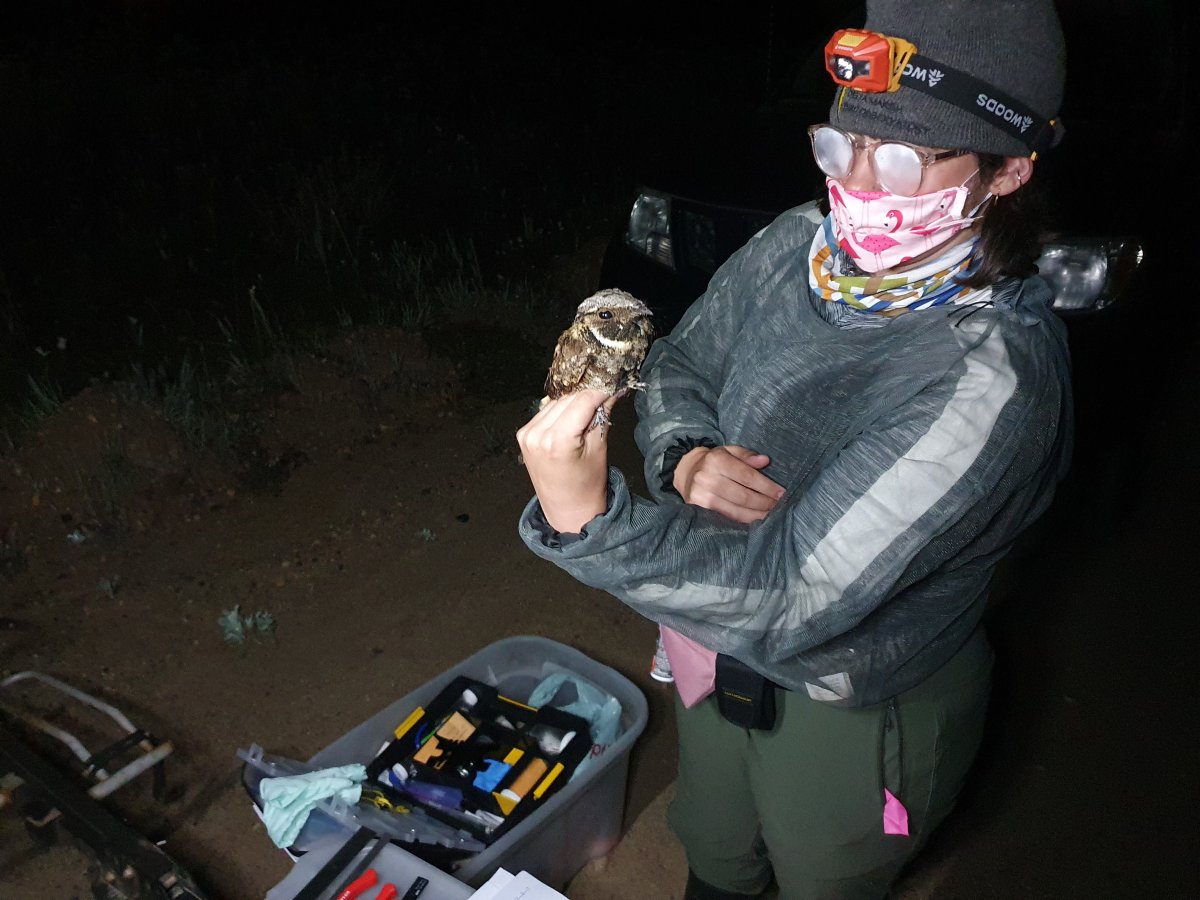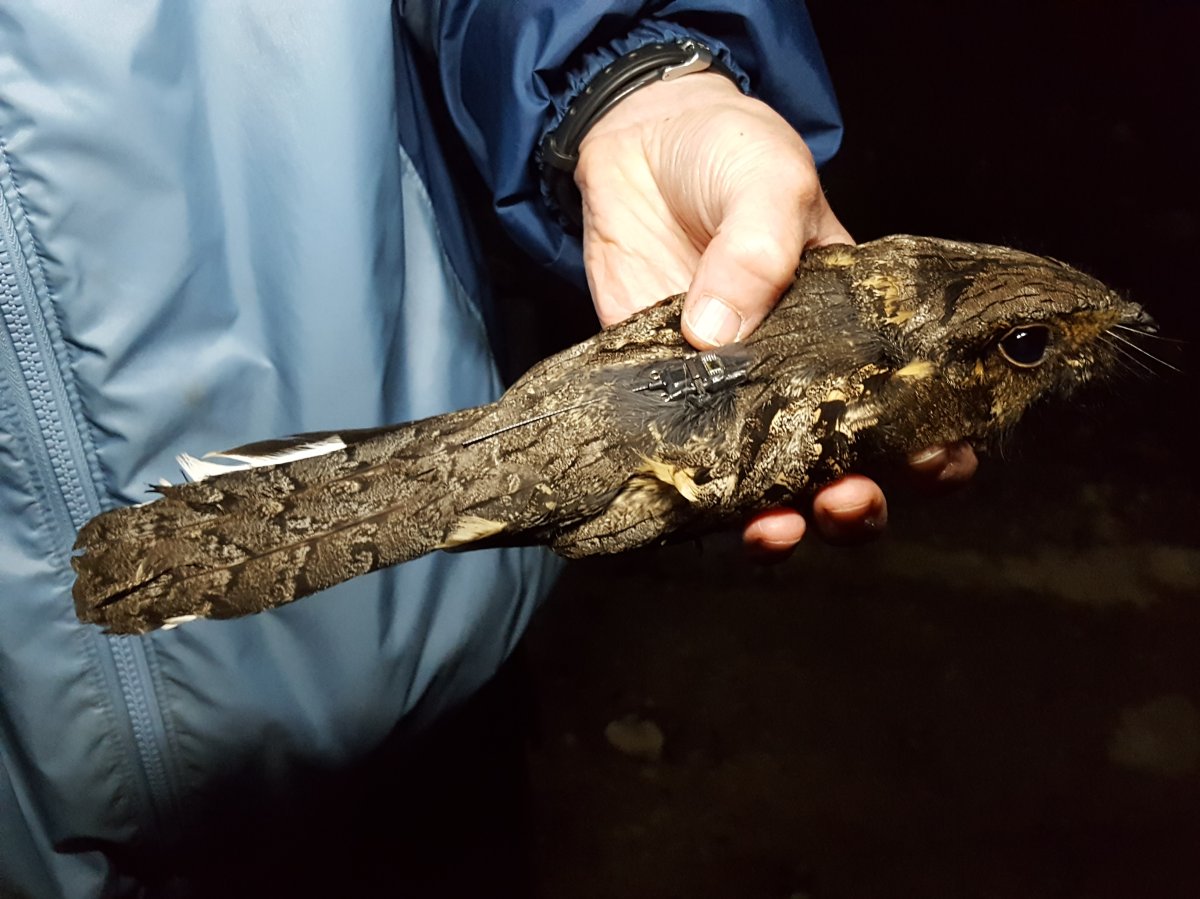Using tiny GPS backpacks strapped to migratory birds, researchers from the University of Manitoba have found artificial light from cities is affecting the migration patterns of some nocturnal birds.

The research, published Thursday in the scientific journal Ecography, looked at how the nocturnal eastern whip-poor-will interacts with light pollution while making its 4,000-kilometre migration from Manitoba and Eastern Canada to Central America.
Most birds migrate at night — even if they’re not nocturnal — and it’s widely known artificial light attracts many of them, but the researchers wanted to find out how lights in the night’s sky specifically affect nocturnal species, like the whip-poor-will.
So the team from the U of M’s Avian Behaviour and Conservation Laboratory equipped the birds with “pinkie-tip sized” GPS sensors that allowed researchers to track the birds during their journey.
The study found whip-poor-wills prefer dark skies so much that they followed “meandering paths” to avoid light.
While researchers can’t say for sure what metabolic cost these diversions have on the birds, PhD candidate Alicia Korpach, who led the study, says the team presumes the altered travel plans are unwelcome for the whip-poor-wills.
She says the results provide new and crucial data to a burgeoning idea that argues airspace is a habitat that should be conserved.
“Aerial habitat needs to be considered along with terrestrial habitat,” Korpach said in a release.
“We need to pay attention to what flying animals need in order migrate. I think making it more of a formal concept, more equivalent to how we look at the landscape and the oceans, would be integrative.”
The researchers hope the data collected will encourage municipal governments to look at implementing light policies that will help encourage bird migration, like the City of Winnipeg’s recent Lights Out Winnipeg bird-friendly policy.
Korpach’s supervisor, associate professor of biological sciences at the U of M, Kevin Fraser, says homeowners can help by turning off or dimming lights, especially during spring and fall migration.
A previous U of M study found different light wavelengths have varying effects on birds, so Fraser adds changing the colour of light bulbs can help too.
“Whip-poor-wills are such an iconic species of summer nights in Canada but are declining steeply,” Fraser said.
“They are currently listed as Threatened under our federal Species-at-Risk Act. Learning more about what they need to safely journey between Canada and their winter homes in the tropics can help us to better conserve them.”







Comments